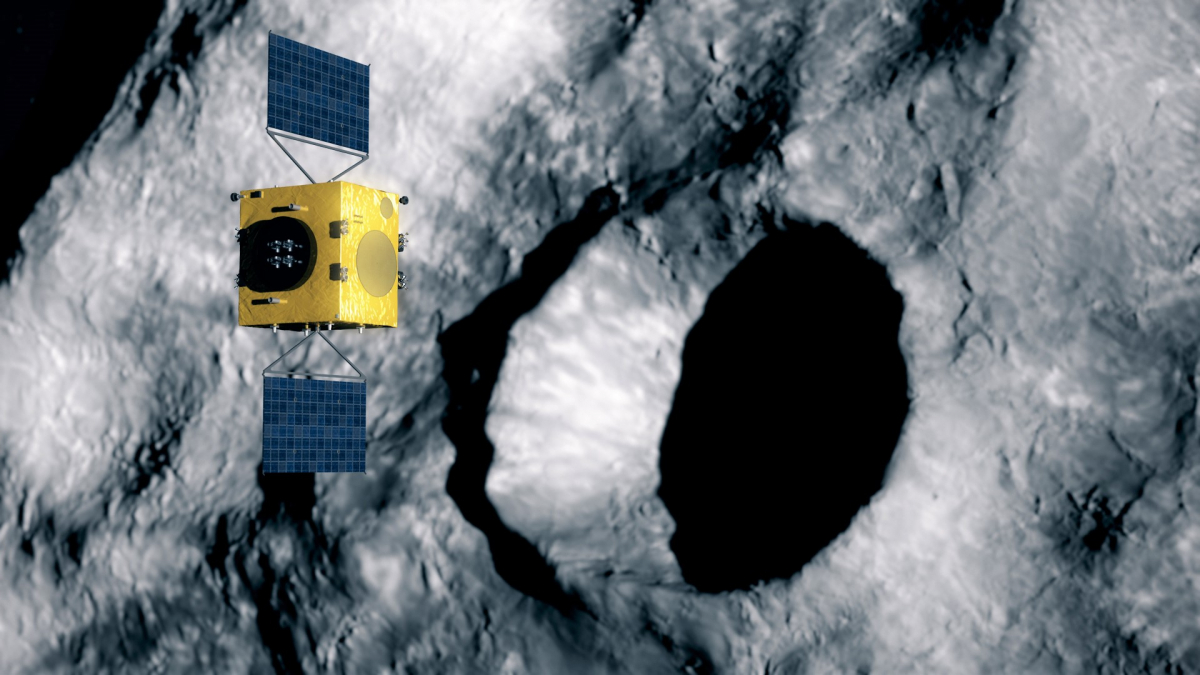Europe is preparing alongside the Americans to protect themselves from near-Earth asteroids that would threaten the Earth.
OHB picks up the pompom
On 15th September ESA awarded the German manufacturer OHB the construction of Hera, the first European planetary defence mission.
The amount of the contract amounts to 129.4 million euros, for a total of 300 million euros representing the entire mission.
It includes the detailed design, manufacture and testing of the probe, which will be carried out jointly with 17 Member States of the European Union.
The preliminary study was also entrusted to OHB in August 2018, for a sum of 4.5 million euros.
Life insurance for the Earth
Named the Greek goddess of marriage, the Hera mission is the European contribution to the Aida (Asteroid Impact - Deflection Assessment) programme, an international initiative initiated by Nasa.
The objective is the deflection of near-Earth asteroids that would pose a threat to The Earth.
Scheduled for 2024, it will be the first probe in the world to conduct a prolonged exploration of a system of two asteroids: Didymos.
Binary asteroids are a little-known category of astronomers, although they account for about 15% of identified asteroids.
The Hera mission will try to determine if it is possible to deflect from its trajectory an asteroid that could collide with our planet, in order to validate strategy ready to be deployed to prevent a real threat.
The initiative is part, large-scale demonstration of the deviation of an asteroid for planetary defense.
"This is a mission worthy of an Indiana Jones adventure, which will offer a lot of beautiful science, therefore of the dream, and allow us to prepare well before we need it," enthuses French astrophysicist Patrick Michel, head of science (Principal Investigator) of the mission at the Observatory de la Côté d'Azur. Other low-probability risks that we are currently experiencing show us that when the consequences are potentially great, it is worth it, especially when budgets are reasonable and we have all the skills to do so. »
TAS on board
The mission control centre will be based in Darmstadt, Germany, at the Esoc European Space Operations Centre.
Thales Alenia Space will provide the probe's communication system and other key equipment, which will track, monitor and receive its radioscience data at a distance of up to 500 million kilometres.
Thales Alenia Space in Spain will be responsible for the X-band communication system and will lead an industrial consortium.This includes Thales Alenia Space in Italy, responsible for the deep space transponder, and Thales Alenia Space in Belgium, head of TWTW equipment to amplify the frequencies and supplier of the PCDU, the probe's electrical core.
After arriving around the binary asteroid, Hera launched two cubesats, including the CubeSat Milani developed by the Department of Aerospace Science and Technology of the Milan Polytechnic (Politecnico di Milano).
A previous asteroid mission project, called the Asteroid Impact Mission, had been carried out by the Agency in the past and abandoned in 2016 due to lack of funding.
Découvrez cet article sur Air&Cosmos

